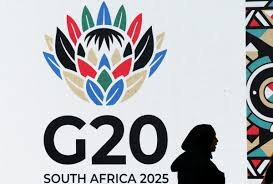
South Africa’s leadership of the G20 has encountered early turbulence as key U.S. officials boycott crucial meetings, highlighting growing tensions between the nations. President Cyril Ramaphosa’s call for renewed commitment to multilateralism and international law stands in stark contrast to the U.S. administration’s “America First” stance.
The absence of U.S. Secretary of State Marco Rubio and Treasury Secretary Scott Bessent from the Johannesburg meetings signals a significant diplomatic rift. Rubio’s pointed refusal to “coddle anti-Americanism” and criticism of South Africa’s focus on “solidarity, equality, and sustainability” underscores the growing divide between the two nations.
South Africa’s presidency, marking the first African leadership of the G20, aims to amplify developing nations’ voices in global economic discussions. The group, representing over 80% of the global economy and two-thirds of the world’s population, faces unprecedented challenges in maintaining cohesion amid rising international tensions.
The deteriorating U.S.-South African relationship stems from multiple factors, including Trump’s aid cuts and criticism of South Africa’s stance on domestic issues and its genocide case against Israel at the International Court of Justice. This strain threatens to undermine South Africa’s ability to achieve its objectives during its presidency, which extends until November 2025.
Despite the U.S. opposition, the meeting has drawn high-level participation from other major powers, including China, Russia, France, and the UK, highlighting the complex dynamics of contemporary global diplomacy and the challenges facing multilateral cooperation.
